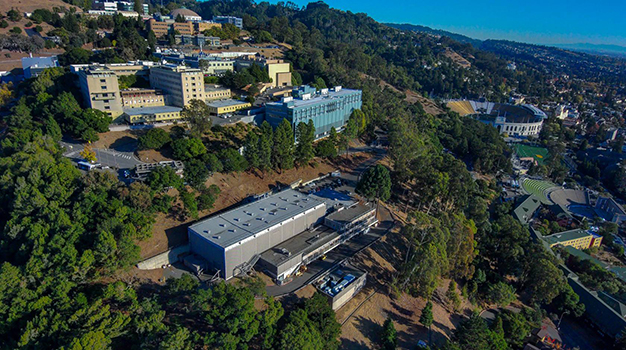Federal contracts extended for LBNL and LLNL
The U.S. Department of Energy has extended the University of California’s contract to manage and operate Lawrence Berkeley National Laboratory (Berkeley Lab) for another five years, effective June 1, 2025.
The news of UC’s contract extension for Berkeley Lab comes shortly after the National Nuclear Security Administration on Nov. 21 executed a noncompetitive extension of Lawrence Livermore National Security, LLC’s Management and Operation contract for Lawrence Livermore National Laboratory (LLNL), of which UC is a key partner.
The current LLNL contract expires on Sept. 30, 2026, with the extension lasting for five years through Sept. 30, 2031. There is also a one-year option period to extend performance through Sept. 30, 2032.
The two contract extensions further the University of California’s long and storied history of service to the nation through the management and operation of U.S. Department of Energy (DOE) national laboratories.
The Berkeley Lab-UC partnership has been incredibly productive, leading to 16 Nobel Prizes, 17 National Medals, and hundreds of scientific breakthroughs over the years. The University of California has managed Berkeley Lab on behalf of the federal government since 1943. Berkeley Lab’s relationship with UC Berkeley extends in an unbroken line to 1931, when Ernest Lawrence founded the Rad Lab on the Cal campus. Today, Berkeley Lab is managed by the University of California for the Department of Energy’s Office of Science.
“The University of California has a long history of advancing national security through cutting-edge science and technology undertaken in partnership with our affiliated National Labs,” said UC President Michael V. Drake, M.D. “As we work to address the challenges of the 21st century, it’s more important than ever to develop solutions rooted in research and data. I’m proud of the University’s legacy of innovation and excellence, and I’m confident that our work with the National Labs will continue to greatly benefit the nation well into the future.”
“The University of California is grateful that the Department of Energy has extended the prime contract and is honored to continue operating Berkeley Lab as a public service to the nation. Berkeley Lab offers UC faculty, postdocs, and students access to world-class experimental facilities and opportunities to collaborate with leading researchers on large, complex, multidisciplinary problems,” said June Yu, vice president of the UC Office of National Laboratories.
Livermore Lab plays an equally vital role on the frontiers of national security, global stability and resilience through multidisciplinary teams that pursue bold and innovative science and technology — and since the Lab’s creation in 1952, the University has played a role in its management.
In recent weeks, LLNL unveiled its El Capitan supercomputer, announcing that it had been recently verified as the fastest and most powerful supercomputer in the world, and the first exascale system dedicated to national security.
And in late 2022, LLNL made history — and global headlines — with its announcement that it had achieved fusion ignition with an experiment at the National Ignition Facility (NIF), a scientific breakthrough decades in the making that opens new avenues for enhancing national security and developing sustainable energy solutions.
“Lawrence Livermore National Laboratory has long been a cornerstone of national security and scientific discovery,” said Yu. “The University of California is honored to continue supporting the outstanding talent, groundbreaking research, and cutting-edge facilities at LLNL that drive progress for the nation.”
Tags: June Yu, Lawrence Berkeley National Laboratory, Lawrence Livermore National Laboratory, LBNL, LLNL, U.S. Department of Energy



